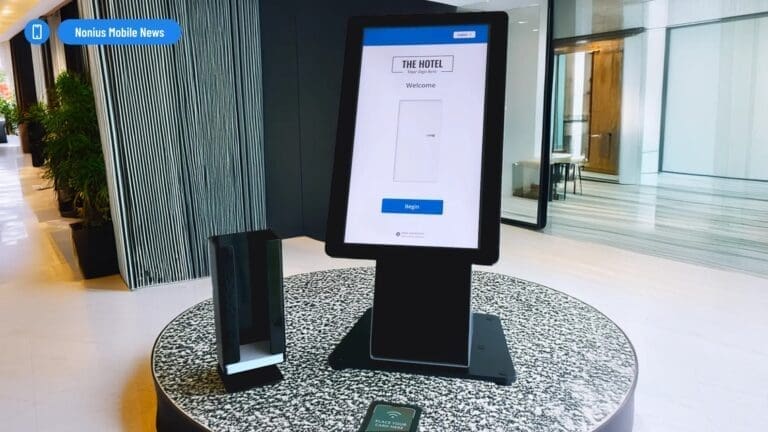 The hospitality industry has always been at the forefront of adopting new technologies to improve the guest experience. From mobile check-ins to personalized services, hotels constantly seek innovative ways to satisfy their customers. One technology poised to revolutionize the hospitality landscape is Augmented Reality (AR).
The hospitality industry has always been at the forefront of adopting new technologies to improve the guest experience. From mobile check-ins to personalized services, hotels constantly seek innovative ways to satisfy their customers. One technology poised to revolutionize the hospitality landscape is Augmented Reality (AR).
The check-in experience reimagined
Imagine stepping into a hotel lobby where your smartphone instantly becomes your guide. As you walk in, AR technology superimposes interactive signs on your screen, guiding you effortlessly to the check-in counter or towards amenities like elevators and restaurants.
But it doesn’t end there. How about a virtual assistant popping up on your device? This AR-based avatar can provide step-by-step instructions to complete the check-in process, recommend upgrades, or offer discount coupons, making your arrival smooth and engaging.
Your room, your digital space
AR holds the potential to turn your room into a highly personalized, digital experience. Before you even open the door, an AR-based virtual room tour can offer you a 3D overlay of the room’s amenities, layout, and features. Such previews could influence your decision to accept the room or request a different one.
Once settled in, your smartphone can become an AR-enabled remote control for your room. Imagine pointing your device at the air conditioner, and a control interface appears, allowing you to adjust the temperature. Fancy some room service? Point at the empty plate or the mini-bar, and an AR menu springs to life. You can now place your order without fumbling through a printed menu or making a call.
Exploration and navigation made simple
Even in the most luxurious hotels, finding your way around can be daunting. AR technology can provide real-time navigational aids with arrows and guides to help you find facilities like the gym, pool, or conference rooms.
What’s more, the technology could expand beyond the hotel’s walls. You could point your device from your room window to see AR indicators for local landmarks, museums, or restaurants, complete with options to make a reservation or buy tickets. For international travellers, AR can overlay instant translations of signs, menus, or even real-time conversations, breaking down language barriers.
Safety first, always
Safety and hygiene have become central concerns for travellers. AR can help here, too. In an emergency, your device can guide you through the safest, quickest path to the nearest exit. For the more hygiene-conscious, pointing your device at various items in the room could provide information about when they were last cleaned or sanitized, giving peace of mind.
Leisure and business services
Imagine engaging in an AR-based treasure hunt within the hotel premises if you’re travelling with family. It is entertaining and could also serve as an educational tool about the hotel’s history or local culture.
Business travellers aren’t left out either. Point your device at the conference table during meetings, and you can see participants’ names, titles, and brief bios appear. For presenters, AR glasses could overlay speaking notes or critical points, allowing you to maintain eye contact with your audience while staying on track.
The future is now
The integration of Augmented Reality in hotels is not a distant dream but a reality that is already shaping guest experiences worldwide. From simplified check-ins to highly personalized room experiences, real-time navigation, safety features, and interactive leisure activities, AR has the potential to make hotel stays more comfortable, engaging, and memorable than ever.



















